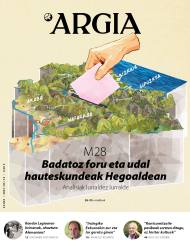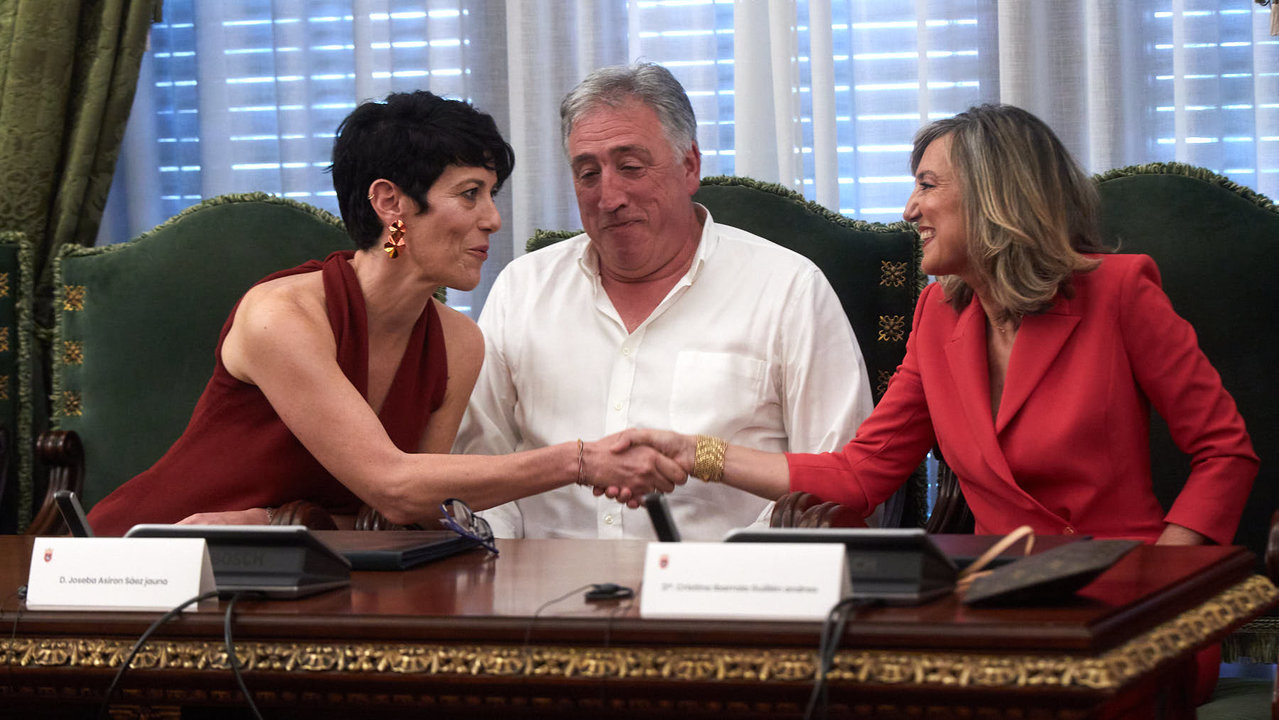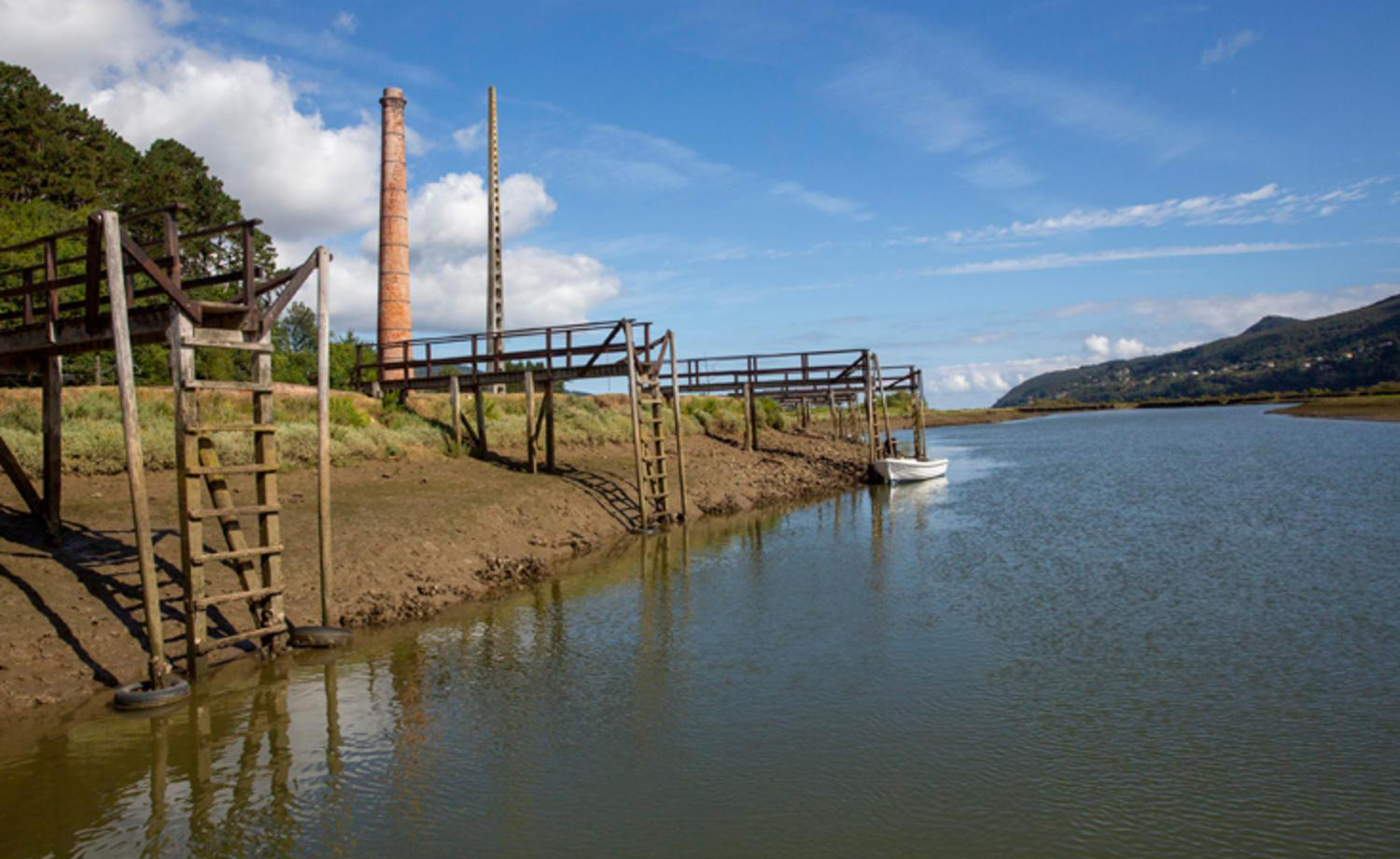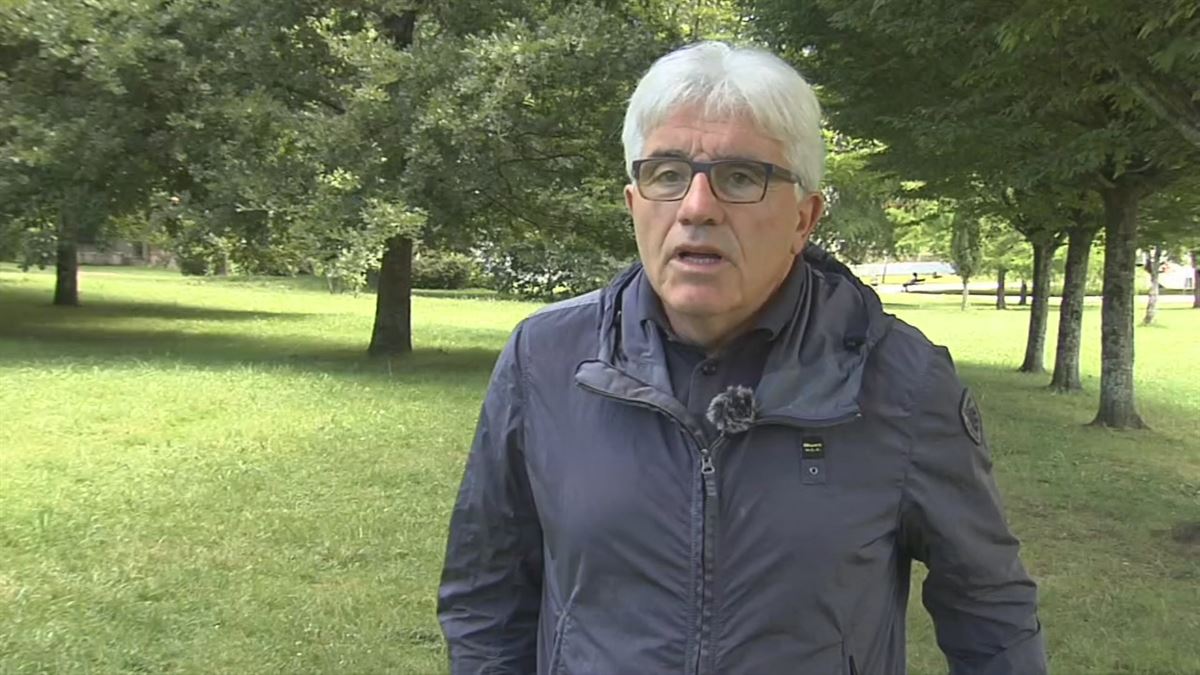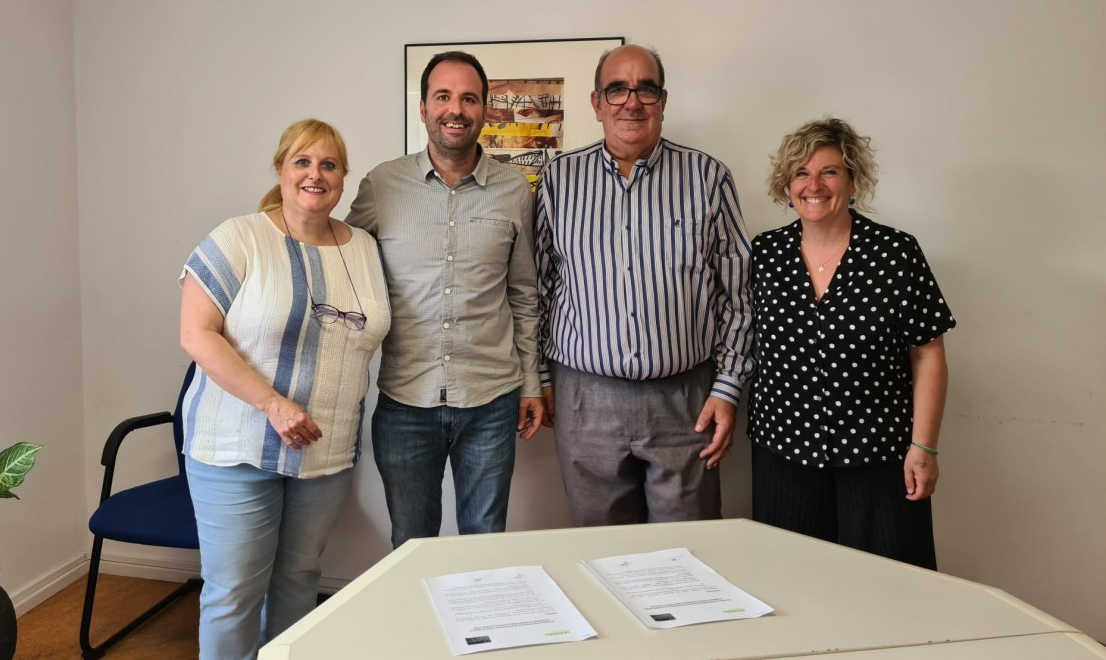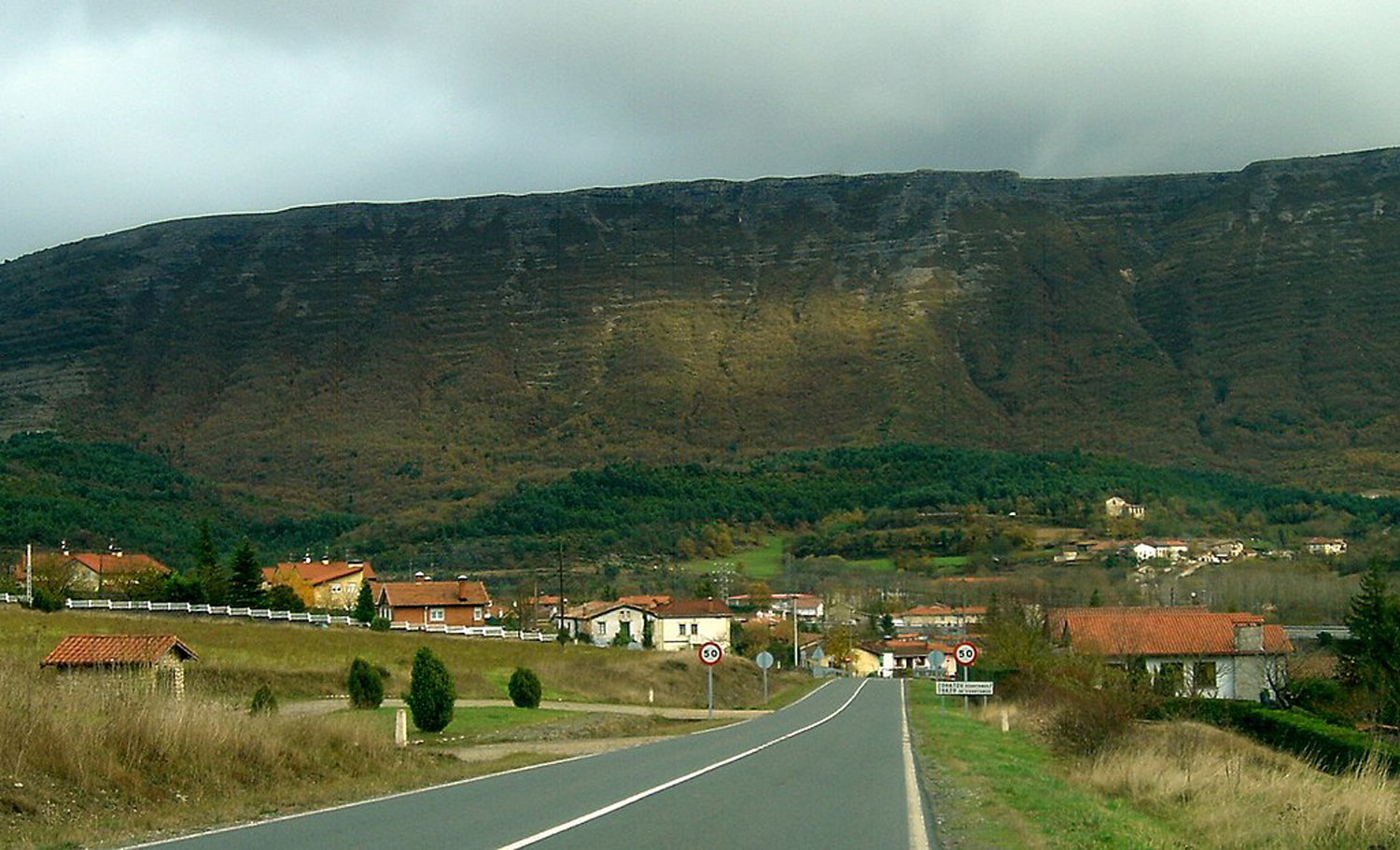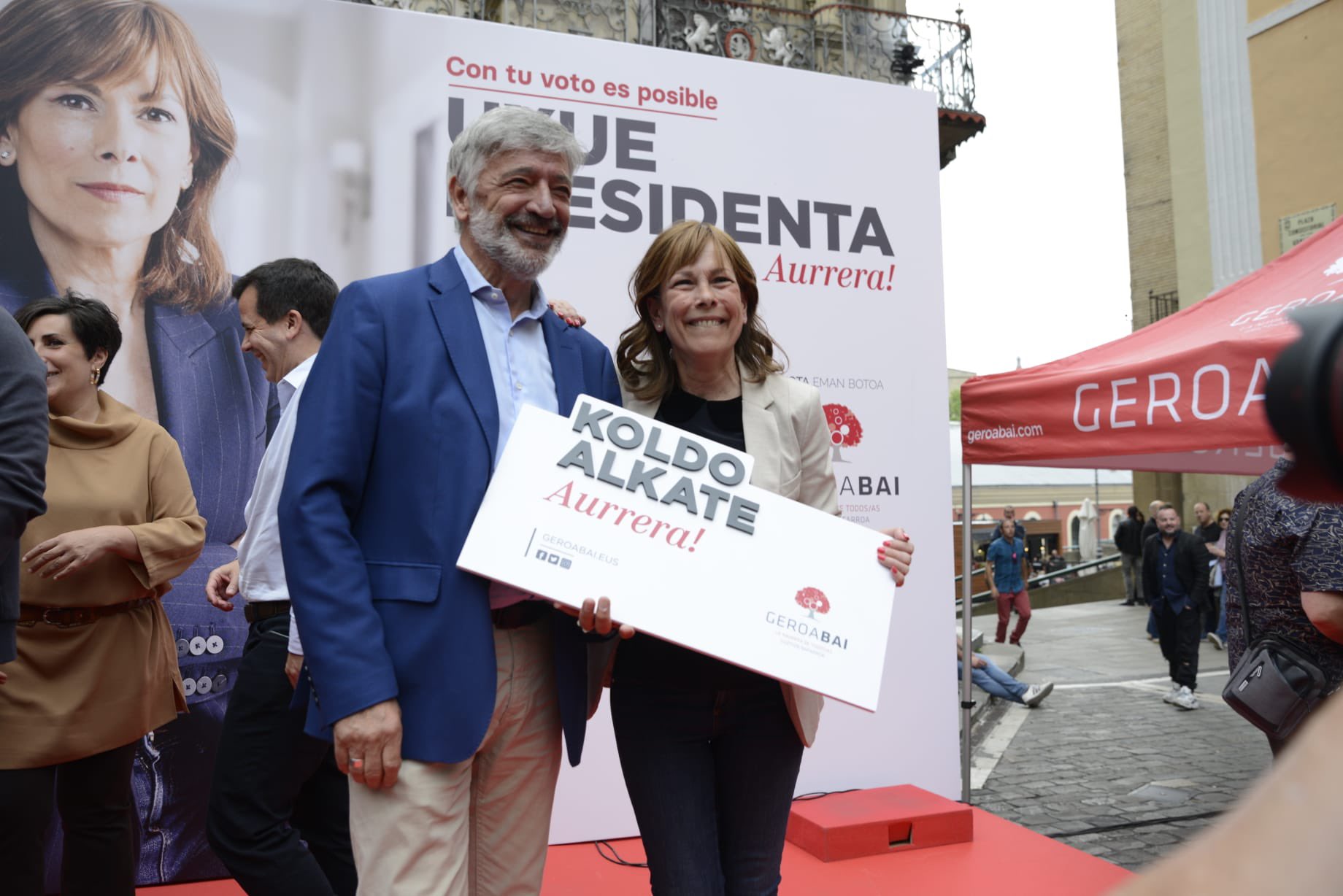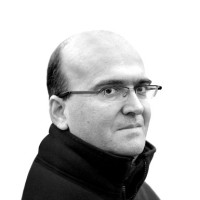"The fight against the Gongora landfill linked the Aranguren valley forever"
- Aranguren, the valley where Mano de Irulegi appears, is an open valley of the Region of Pamplona formed by eight villages. In the early 1990s, 1,200 neighbours then met firmly against the Góngora landfill. From that struggle arises the passion to defend and manage their peoples. And they continue to do so in a municipality with 13,300 inhabitants and one of the best services in Navarra. The conductor is Manolo Romero, president of the independent candidacy, who now stands as a candidate for the mayor for his eighth term.

Manolo Romero Pardo. Oliva de la Frontera, Badajoz, 1961
He has been mayor of the Aranguren Valley of the County of Pamplona for 28 years. She came to Mutilva in 1972 with her father and younger sister. By then the three older brothers came from Badajoz to work. They were firmly collected against the Góngora landfill, opened in 1992, as most of the inhabitants of the valley of the time. Romero also participated in this great popular mobilization as a neighbor and president of the Mutiloa Council. Since 1995 he has been mayor of the Aranguren Valley on behalf of the Independent Group, witness the former independent mayor since 1987.
Why is the independent candidacy so strong in Aranguren?
In 1989 the Community approved a project for the municipality of Góngora, but when citizens saw that it was only a mere landfill, they became very angry. At that time we were about 1,200 neighbors in the valley, we had a lot of relationship and this created a climate of intense solidarity. It was a milestone. The fight against the landfill of Góngora is shared by forever uniting the valley of Aranguren.
How has Aranguren changed during these three decades?The boy, the
capital, has changed a lot and has been able to seize his potential. In the valley we have grown to 13,500 inhabitants, one of the highest average per capita incomes in Navarre, more than 30,000 euros, the lowest unemployment rate and a very young population: We have 2,500 children and youth under the age of 15 and 1,500 more between 15 and 20 years. Small businesses, farmers and farmers predominate here. In addition, on our grounds we have an industrial area, the sports facilities of Tajonar and the Public University of Navarra.
The 1990s was a very important moment when the Government of Navarra enacted a new law on local administration. This allowed councils of over 1,000 inhabitants to leave compound municipalities. Many towns such as Berriozar, Ansoáin, Zizur or Lekunberri took that path without thinking too much about how other smaller towns of those municipalities remained. At Aranguren, we think against: if we have been together in this battle of the landfill, why not look for another formula to manage ours? From this point of view, we removed the council of Mutiloa and created the City Hall of the Aranguren Valley, maintaining its status as farmers and farmers, the capital of Mutiloa and seven other small towns. Our goal was moderate and orderly growth. We began to work to provide all peoples with the right infrastructures and to develop, together with housing, services. We have always invested all our benefits in services and people value it very much. All of this we pose as a challenge of barrio.Esta way of functioning emerged in the assemblies and with it we follow.
Our goal has always been to make homes for its neighbors first. That is why our candidacy has been growing in recent years. Some thought that the more we increase the population, the less support we would have, but what contrario.Desde the appearance of the big parties in the valley, people distinguish their vote here and in parliament. Our policies are progressive and the centre-right people who vote for us do not hinder us from doing those policies.
THE HAND OF IRULEGI "We were perplexed and surprised that until November 14 the information that was kept was made public without demanding anything from anyone"
How did the Irulegi site project start?In the years
2005-2006, with the implementation of all basic services, we plan to start making other investments. Thus, in 2008 we contacted Aranzadi to carry out the excavation work of the castle of Irulegi and since then we have allocated between 30,000 and 40,000 euros each year.
In the Government of Navarra, in its beginnings, they were shrinking, but over time they have gained confidence in us. However, the city council has invested more than 550,000 euros and we have received no government money. When in 2018 we ended the castle from Aranzadi we were told that on the hillside there were important remains of a village and decided to continue investing in these excavations. The Government of Navarra then took more heat and gave us about EUR 7,000. When the hand appeared in 2021, the archaeological and linguistic ensemble was total. We were startled and surprised that until 14 November the good information that was kept was made public without demanding anything from anyone.
.jpg)
"The word tourism gives us a terrible fear. We want to value what we have in Aranguren, but making it clear to the visitors who come here that livestock and agriculture are what must be respected"
How has the situation now changed with your hand?The hand
is the axis and will bring people to Aranguren, but you have to do things right. That is why we say to the institutions that if they want to donate money, well, but do not specify what we should spend. The Government of Navarra said that it was going to contribute 250,000 euros, 200,000 the Commonwealth of the Region of Pamplona, 300,000 will arrive from Madrid thanks to an amendment of budgets of EH Bildu… but we have to say what to invest all that.
We have to continue with excavations, but we also have to create infrastructures to welcome the public, not forgetting that they are farmers’ and farmers’ villages. It is intended to provide the Gongora Palace with a central reception space to offer visitors all the information and services. A few years ago the Society of Sciences Aranzadi hosted the palace with the intention of locating its headquarters in Navarra, but receiving less economic contributions with the crisis, it was bought by the city council with the intention of sharing them. We have invested more than EUR 2.5 million so far and it is not yet complete. We want to create a cultural and environmental reference area. The word tourism gives us a terrible fear. What we want is to value what we have in Aranguren, but to make it clear to the visitors who come here that livestock and agriculture are the main ones and that we must respect them so that nobody feels crushed.
We are also very clear about the importance of this discovery for the Basque people. That is why we say to the Government of Navarra that this has to provoke deep reflection and that in the next legislature we have to think about what to do with the mixed zone, because this discovery demonstrates that in the County of Pamplona the language has been settled for a long time and not because in a plenary session the fingers were raised. We ask the government to work on the path of consensus throughout Navarre.
12 years ago they opened model D, although they were in the “non-vascophony zone”. Why?
We have always been a very demanding city hall. We opened a model D class because the demand in public school was enough. It was approved by the government, but it demanded that the request for change of scope should be approved in full. It was adopted unanimously and since 2010 we have been in this area. Today we have over 450 students in Model D and, in addition, we have just made a center for this model, because we believe that linguistic immersion is essential. In Navarre many believe that it is better for us all to be in the same place for coexistence, but that is very difficult to defend. You just have to see it, if you want to learn English, you go to Ireland or England and not to the best academy in Caparroso, right? This may be one of the last centers of the empty Model D, because today policies are not on this path.
We have a concerted center in the valley and we work with them to have good services, but as a city hall we have to invest in public education, because it is the guarantee of universal education and the school is the social meeting point of the families, because it helps to make people and valley.
"People distinguish their vote here and in parliament. Our policies are progressive and the center-right people who vote for us do not hinder us from doing these policies."
They also opened the Basque service before moving to the mixed area.
Yes, because we understand that the coordination and proper ordinances of the Basque Country are imprescindibles.En the County of Pamplona there are many ordinances approved, but often the Administrative Tribunal frustrates municipal decisions. Why should that court be above a city hall in terms of the composition of its staff? And why don't they resort before the processes end? They seem to be waiting until the end to cause more damage.
For years we have also suffered very aggressive attitudes and actions against the Basque people. For example, 1,000 signatures were collected against Pirritx eta Porrotx. Even when there was hard terrorism, we have always been committed to dialogue and we have had conflicts with UPN. Despite the difficult times, our candidature has managed to survive because we are very close to citizenship.
Are you a rich town?This town
hall has never asked for loans and we have never had debts because we have never spent the money we had not spent. We have a high income because there is no unemployment.
And how do you get that?
Because we have EUR 400,000 a year in our budget to help jobs. We give aid for self-employment and when an external company hires an unemployed Aranguren, we also subsidise it.
Do you get a lot of taxes from
the industrial center?The city hall pays for cleaning, light, repairs -- and we only get 20 percent of taxes. The Government of Navarra, for its part, bears VAT, IRPF and the State of Social Security.
.jpg)
"For Pamplona, for example, I think an agreement is right: Socialist Elma Saiz one year and Joseba Asiron three years”
What does the immigrant population look like here?
Paradoxically here we have always worked hard for social housing and to facilitate the access of young people to a home, but today ours is a very expensive place to live. That is why the immigrant population living here is not very large. In addition to the official protective floors, we have built 80 social housing units in collaboration with the government. The City Council grants special assistance for work and training to the families who come here.
How far do municipal competencies arrive?There are
issues that are very defined, but many others are competencies that you can assume. In them, every city council places the roof it wants. We, for example, have a very good relationship with the Public University of Navarra, because in its day we made homes for teachers, and since then we have had a great collaboration. They made us the public telecommunications network that we currently have for the entire valley and we are now working to set up energy communities.
Here there
are no local policemen… Some have a lot to do with security. They feel very safe with the proximity of local policemen, outsiders and civilian guards, but since I had bad experiences with the civil guard, I don't feel safe with them. We have seven sheriffs who serve as municipal policemen, but have no weapons. In addition, the new police station will soon be opened here, with a more prominent presence in the area.
It takes a long time as a mayor. Don't you get tired?
We put all the charges on the table every four years. All of us who are part of the Independent Group have our work and are involved in management because we believe that we have to do so. Nothing to do with professionalized policy. I like politics and for me it is not sacrifice working for the people. I'll be here as long as people want.
What do you think will happen in the elections?Of the 17
councilors we now have eleven, has four Navarre Suma and have one EH Bildu and another PSN. Its maintenance will be difficult and we do not know what will happen with the division on the right. Looks like EH Bildu has touched his roof. They are very faithful militants and we are very well with them, because we are making many policies that they would do. The socialists are not here, and those of Ahal Dugu, Ezker Batua or Geroa Bai do not stand up to the popular candidacy.
I think there will be few changes in the Navarre Parliament. In Navarre EH Bildu will go up a lot and the right may lose some mayors. For Pamplona, for example, I think an agreement is right: Socialist Elma Saiz one year and Joseba Asiron three years. much.
In recent days, Enrique Maya has awarded the underground parking of the Plaza de la Cruz de Pamplona, whose works will begin in summer. Also the demolition work, among other things, by the felling of beautiful trees that give air to the plaza. When your shadow and absorption of... [+]
A week after the municipal elections, we seem to be willing to analyse the results that have left these new elections, which will mark the institutional policy of the municipalities over the next four years. The most worrying aspect of all possible studies is undoubtedly the... [+]
Spanish citizens have been invited in recent days to the elections, to the members of boards, parliaments or municipalities, to the renewal of these institutions, and now all of them, in the analyses, in the calculations, are in the hands of who the power will fall, with whom it... [+]
The PSN multilingual electoral cartel has ignited fire and pain. "It takes laughter in Navarre to ask for a vote in eight languages in 2023, excluding Basque. Vultures. Lettuce. Not even to fake."
These purrusts have been read these days in Euskal Txio Herria, at the expense of... [+]









